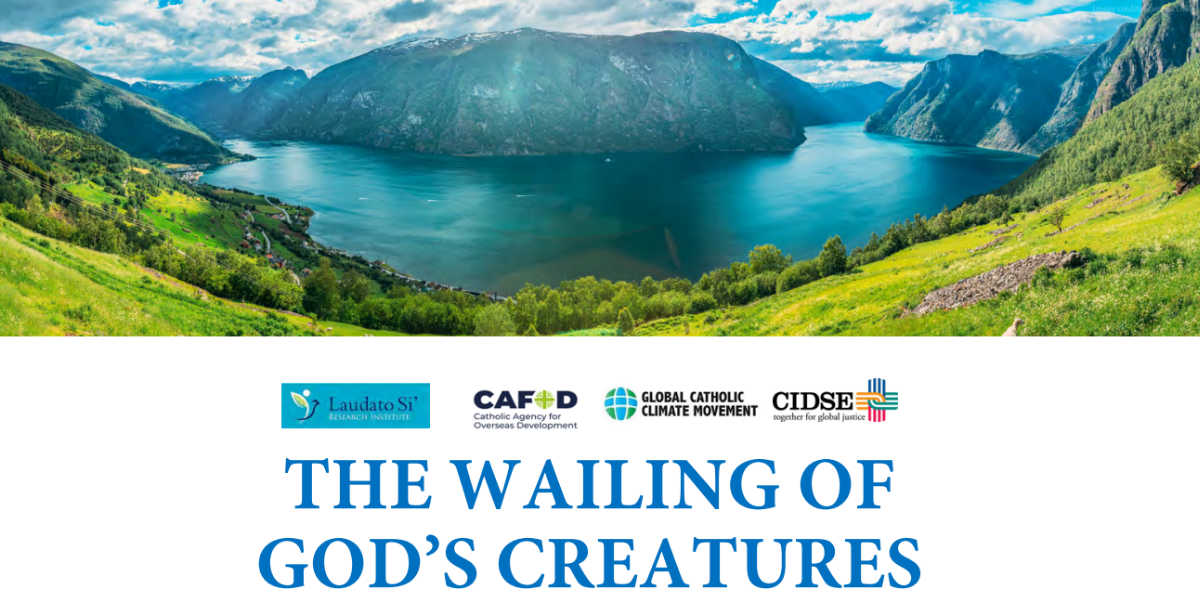More than ever, our world faces multiple challenges: the health, the climate crisis and an unprecedent loss of biodiversity. These crises are interconnected, and are calling us to rebuild the harmony between humanity and nature.
The new report “The wailing of God’s creatures – Catholic social teaching, human activity and the collapse of biological diversity”, commissioned to the Laudato Si’ Research Institute by CIDSE, CAFOD and the Global Catholic CIimate Movement, calls for more attention from politicians and decision makers to address this “collapse” and ensure planetary health and the survival of all organisms, including humanity.
As Catholic social justice organizations, we felt the need to deepen our understanding of biodiversity in light of our values of justice and solidarity and look into our added value in supporting the call for its protection. The report reminds us of the urgency of a radical ecological conversion and that “a return to integrality is essential for finding an efficient and sustainable solution to the current socio-ecological biodiversity crisis”.
The report points out that most of the species’ extinction is primarily driven by land use change, overexploitation and overconsumption, invasive species, environmental pollution and climate change and because of its tragic consequences on the planet, we cannot afford any further loss of biodiversity.
“Since 1970, 68% of vertebrate wildlife has been lost, with Latin America/Caribbean and Africa, two regions with many economically underdeveloped nations, bearing the brunt of the losses. This tendency is also reflected in the data available on invertebrates and plants.”
Against this backdrop, the next UN biodiversity conference (Convention on Biological Diversity COP 15) will provide a unique opportunity to enhance efforts to address the biodiversity crisis and work together for an ecological conversion at all levels as the Post-2020 Global Biodiversity Framework will be adopted. This should also include the voices of indigenous communities, who are the principal guardians of nature.
This call for biodiversity protection is extremely important while the world is designing the recovery plans post pandemic to ensure building forward better and address the covid19 and the climate emergency.
Some key information in the report include:
- Humanity’s ecological footprint exceeds Earth’s biocapacity by over 50%, so that we would need 1.6 Earths to sustain our unsustainable lifestyle.
- Consumption is unbalanced, with the wealthiest 20% using up 80% of global resources.
- Zoonotic diseases like COVID-19 are reaching pandemic levels more easily.
- Numerous studies have shown that the decrease in grassland plant diversity will severely affect ecosystem productivity.
- Populations in freshwater systems have been depleted by an average of 84%.
- Brazil now has more cows than people, 40% of them in the Amazon.

